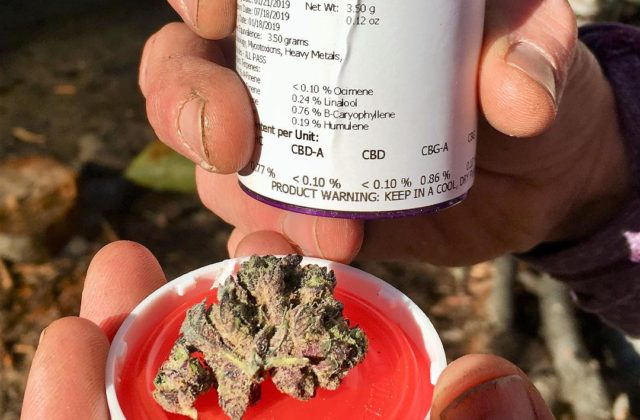Cannabis: Coming of Age in 2019
By David Beers
In early January, a store that sells recreational cannabis (marijuana) opened its doors in Great Barrington. The Theory Wellness dispensary is the first of its kind in our area, which makes it a much talked about destination.
The recreational sale of cannabis is now legal in Canada and the states of Massachusetts, Vermont, Maine, Colorado, Alaska, Nevada, California, Oregon, Washington, and in Washington DC. The medical sale of cannabis is legal in 33 states, which includes all of the northeastern states. At the federal level, the sale and possession of cannabis are still illegal, with the feds taking a “Don’t ask, don’t tell” approach to the states’ legalization. Senate bill 420, which would take cannabis off the federal list of illegal controlled substances, has bipartisan support and is currently making its way through Congress.
Here in Connecticut, we decriminalized cannabis in 2011. This means that if you are caught possessing a small amount you are fined (like a traffic violation) and not arrested. In 2012, the medical use of cannabis was legalized, with the first medical sales occurring in 2014. There is currently a bill making its way through the state legislature that would legalize recreational cannabis sales in Connecticut.
Our state’s medical cannabis industry is overseen by the Department of Consumer Protection, which issues permits to the growers and dispensaries and issues certifications to the patients and doctors. Connecticut cannabis is grown in four secure indoor facilities that supply product to the nine dispensaries throughout the state (the closest is in Bristol). There are currently 1,060 doctors certified to prescribe cannabis to 30,851 certified patients. Of those patients, 1,947 are in Litchfield County.
With a certified doctor’s prescription, a $100 annual fee, a bunch of forms and a photo, you can get a medical cannabis card that looks like a driver’s license. This card allows you to purchase 2.5 ounces per month, which are dispensed to you by a pharmacist at a dispensary. With no health insurance coverage of this medicine, payment is out-of-pocket. There is a long list of medical conditions that qualify for cannabis treatment, such as cancer, HIV, MS, epilepsy, PTSD, Parkinson’s disease and cerebral palsy. Medical cannabis has been shown to be very effective at treating pain, chemotherapy nausea and nervous disorders.
I spoke with a Norfolk resident about his medical cannabis use. He asked to remain anonymous (John Doe). After a traumatic head injury from a motorcycle accident, Doe had long-term anxiety and depression. His physician suggested he try medical cannabis last year. Doe now goes to Arrow Alternative Care in Hartford monthly. This treatment has been very successful. Doe also goes to see a therapist once a month to help guide him in his healing.
Doe sits down with a dispensary pharmacist or pharmacist technician at each visit to discuss how well the treatment is working and to adjust the mix of cannabis strains that works best for him. There are many different cannabis strains, which have different therapeutic effects. What works for chemotherapy nausea will be different from what works for a mental health problem. Doe says that he is amazed at both the professional personal attention and the variety of products at the dispensary. In addition to the traditional products for smoking, there are pills, liquids, vapor cartridges and edibles (brownies, cookies, chocolate, honey).
After years of struggling with mental health, Doe has found medical cannabis life changing. Unlike before, he is now able to be productive at work every day and to fully enjoy time with his family. He finally feels good, and he hopes others will not hesitate to seek this medicine if it can help them. Doe emphatically stated, “We need to break all the religious, cultural and social stigmas that go with cannabis use and its role in mind/body healing.”
Photo by David Beers.

